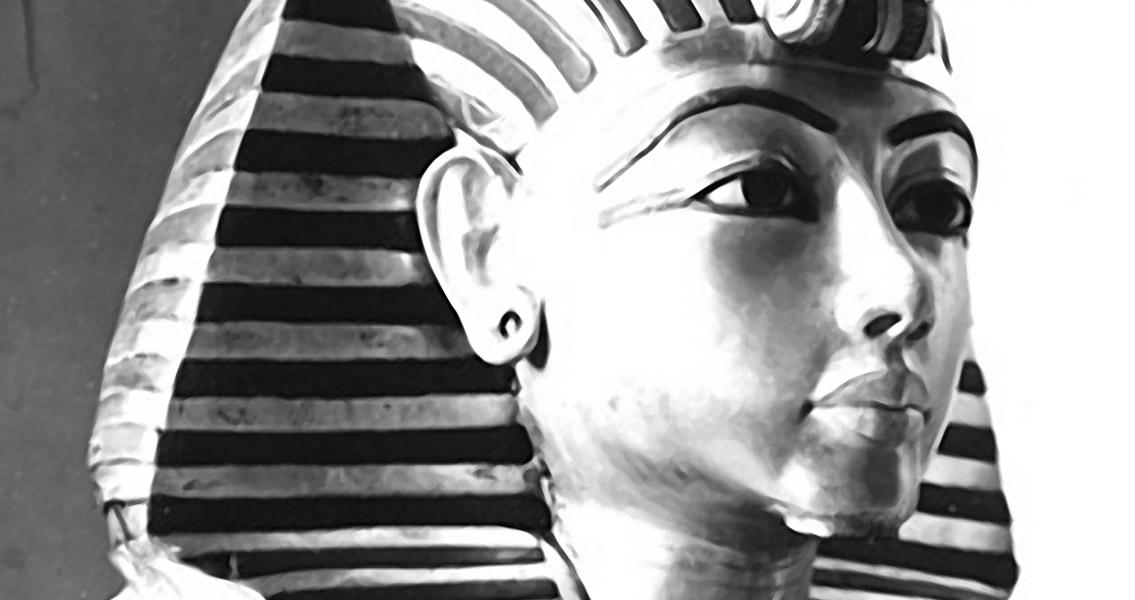<![CDATA[The scan results lie in the eye of the beholder if recent reports are to be believed – and there have been some pretty keen eyes looking at the scans taken inside King Tut’s burial chamber, all of them searching for evidence of plastered over doorways leading to hidden chambers. Had Nefertiti’s tomb finally been found? Was the chamber full of priceless funerary objects, as the Boy King’s had been? High intrigue indeed for the world of Egyptology. It started simply enough; in July 2015, British Egyptologist Nicholas Reeves published a paper contending that laser scans of Tut’s burial chamber showed that behind the painted scenes decorating the west and north walls a number of door-like features were present. He went on to speculate that perhaps the tomb contained another chamber and another burial. His theory? The hidden chamber was the tomb of Nefertiti, who is widely believed to be Tut’s stepmother and increasingly believed to have preceded him as pharaoh. In the fall of 2015, a thermographic scan was taken of the north wall to further investigate Reeves' theory. In this scan, completed by Hirokatsu Watanabe, a radar specialist from Japan, the wall did show anomalies which appeared to correspond to the previously identified features, and the presence of voids behind the two walls. Watanabe even claimed at the time his equipment could sense organic and metal objects inside the voids. These findings, in addition to a physical examination of the tomb, were encouraging and although they were initially skeptical Egyptologists were becoming more receptive to the possibility of hidden chambers, possibly even burial chambers. After the scan results were made public the Minister of Antiquities at the time, Mamdouh Eldamaty, announced during a press conference he was 90 percent positive another chamber was behind the north wall. Fast forward to March of this year; National Geographic organizes a second group of radar technicians to conduct another scan to determine if Watanabe’s results could be imitated. They couldn’t. After months of speculation, the results of the latest scan were revealed recently at the Second Annual Tutankhamun Grand Egyptian Museum Conference in Cairo. Prominent scholar, Zahi Hawass (also a former Minister of Antiquities) noted during the conference that if there were a partition or masonry wall it would show up on the radar, and since it doesn’t then nothing is there. The two scans totally contradict each other. There are only a handful of specialists in the field of ground-penetrating radar (GPR) and how it applies to archaeology. Since the release of some of Watanabe’s images there’s been a significant amount of criticism. Many in the GPR field disagreed with what the scans showed and several experts argued that radar wasn’t able to distinguish ‘organic’ material. That Watanabe hasn’t released his raw data for review is another sore spot. Although he’s not an academic and may be more intuitive in his approach as opposed to scientific, Watanabe is still very well respected and accomplished in his field. The latest scan was conducted by Eric Berkenpas, an engineer, and the raw data was sent to multiple experts in Egypt and the United States for review. Dean Goodman, a geophysicist and developer of GPR-SLICE (the review software commonly used by specialists) analyzed the data himself and came to the same conclusion as the other experts, there was no evidence of doors or hidden chambers. Goodman explained to National Geographic News that a void would have left a strong reflection which isn’t there and neither are any signs that doorways had been blocked in, the results are clear and convincing. It’s anticipated that the Egyptian Ministry of Antiquities will likely approve another set of scans in Tut’s tomb in the next few months and that a committee will be appointed to decide how to proceed. Until those results are known, remember, “the purpose of disagreement is not victory or defeat, it is progress” --Teal Swan. ]]>
Latest Scan of Tut’s Tomb Totally Contradicts the Previous One
